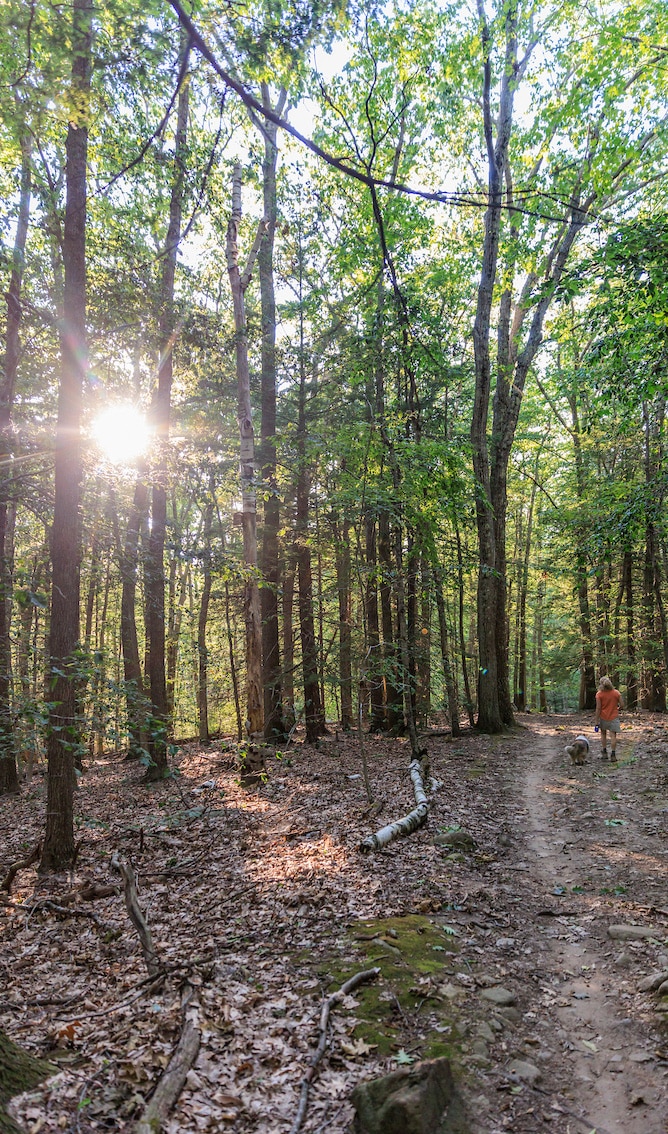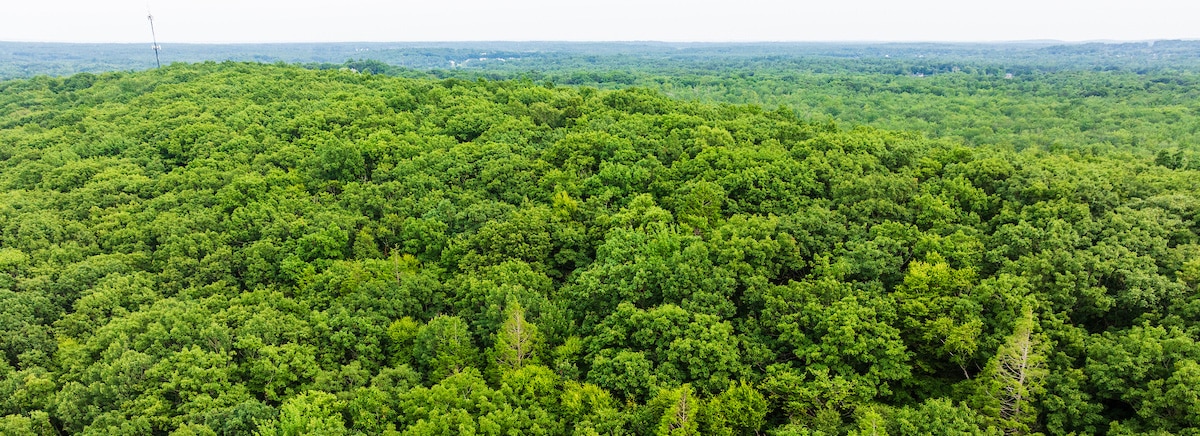Written by David Johnson
Photographed by Jerry Monkman
The ingredients to a successful conservation project are opportunity, resources, and partnership. And, sometimes, there's a deceased fish involved.
A critical segment of a beloved trail system in Stratham has been conserved in perpetuity after the Town’s July acquisition of a property known as the Ross parcel. The Ross project in Stratham had been simmering on the burner for 20 years, with the Stratham Conservation Commission having long eyed the 17-acre property as a small-but-significant missing link important for connectivity and the Commission’s conservation vision.
Snapping this property into the town’s recreation puzzle will officially add nearly 0.7 miles of trails for walking, biking and snowshoeing to the existing outdoor recreation network encompassing the 465 acres of Stratham Hill Park and the Gordon Barker Town Forest.
“This addition creates one of the town’s largest contiguous pieces of conserved land,” said Mark Connors, Director of Planning and Community Development for the Town of Stratham. “The Ross land connects to Stratham Hill Park and to the extensive trail system that radiates out from the park. In fact, most people who walk the Ross property think they’re at the park.”
With its proximity to the Stratham Memorial School, the acquisition provides more town-owned real estate to host academic and recreation activities and provides direct trail access to Stratham Hill Park and the Barker Forest. Members of Stratham’s Conservation Commission, including Chair William McCarthy and Select Board representative Allison Knab, have worked for years to acquire the parcel.

For this project, SELT played an “assist” role; SELT facilitated the negotiations with the landowner and helped the Town secure a purchase agreement, assisted in the grant writing, and managed all the acquisition due diligence on behalf of the Town.
This land was originally the woodlot for the Ross family's dairy farm, which they called ''Souncyseel.'' It was still wild land in the 1950s and 60s, and the Ross children spent a lot of time playing and wandering that land during their growing-up years.
The woodlot was particularly enjoyed by the Ross family matriarch, Nancy Ruth Webber, who loved skiing through the woods and who dreamed that the woodlot might one day become a parkland. The land is offered by Robin, Jeffrey and Dana Ross in remembrance of their mother and of their father, Douglas Ross.
“I think this a huge thing for Stratham,” said Dana Ross. “It’s a success for us and for the town.”
The Ross project is the third project that SELT and the Town have partnered on at Stratham Hill Park. Each of the prior projects – conservation easements on the Short property and Barker’s Farm – supported continued public use and Town management of the existing trail network, which draws in people from all over the region for biking, running, and more.
One of the beloved trails on the Ross property is the bizarrely named “Dead Fish Trail.” A well-liked narrow single-track (particularly enjoyed by mountain bikers), the Dead Fish Trail ends near Stratham Memorial School and is known as a great owl habitat.
But…why “Dead Fish” when this trail is nowhere near a pond or waterbody that could support fish?
“When the trail was being laid out, we came across a dead fish,” Seth says “Our theory is that a bird had grabbed it from Great Bay and dropped it in the woods.”
And that's how a bird's long lost meal now lives on forevermore.

